Sunday, June 19, 2016
About Us
SYNOD : WEST BENGAL
COUNCIL : EASTERN HIMALAYAN CHURCH COUNCIL
AREA : Districts of DARJEELING, JALPAIGURI, MEGHALAYA, BHUTAN & NEPAL
KIRK SESSIONS : 16 & 3 MISSION FIELDS
CHURCHES : 108+23
POPULATION : 11837+
AREAS UNDER EHCC REPRESENTED BY KIRK SESSIONS AND MISSION FIELDS
IT IS A PRESBYTERIAN CHURCH COUNCIL AFFILIATED TO UNITED CHURCH OF NORTHERN INDIA, A BODY HAVING COUNCILS THROUGHOUT THE DIFFERENT PARTS OF INDIA.
EASTERN HIMALAYAN CHURCH COUNCIL HAS MORE THAN 108 CHURCHES IN DIFFERENT PARTS OF THE DISTRICTS OF DARJEELING AND JALPAIGURI, MOSTLY IN RURAL AREAS. A SELF RELIANT COUNCIL HAVING BRANCHES IN COAL FIELD OF MEGHALAYA AND EASTERN BORDERS OF NEPAL, IS AN EVANGELICAL CHURCH LED BY 33 PASTORS AND MORE THAN 250 ELDERS.
Group of Churches of a specific region under the Eastern Himalayan Church Council constitute bodies called Kirk Sessions for decentralisation of power and responsibilities and function accordingly.
There are 16 Kirk Sessions under EHCC and the Churches are represented by these Kirk Sessions to the EHCC in its Executive Committee, different standing committees and the general council body. Each Kirk Session has one Moderator as the President of the Kirk Session to look after the Churches and activities under it.
Moderator is an ordained and appointed Minister of the EHCC and assigned to one or many Kirk Session(s). He is assisted by other ordained and appointed Ministers as Assistant or Associate Pastors to look after the spiritual and administrative well being of the Church and its members.
All Pastors are ordained after receiving theological degree and requisite internship.
Ministers are assisted by Elders elected by the Church members for every three years as representatives to look after the Church.
Each Church, Kirk Session and Council functions in accordance to the Blue Book of the UCNI and Bye-Laws of EHCC. The Church constitute a body called Chhoti Panchayat, the Church Committee and the group of Churches constitute Badi Panchayat, the Kirk Session .
see organogram for details.
HISTORICAL BACKGROUND OF EASTERN HIMALYAN CHURCH COUNCIL
Around 1869 the Church of Scotland started it's religious and charitable trust in the province of Bengal. The Foreign Mission Committee of the Church of Scotland sent its missionaries to India and finally in the areas of Eastern Himalayas. In 1970 Rev. William Macfarlane came to Darjeeling from Gaya. He was followed by other missionaries and they ventured to different localities of the area and established dispensaries, schools and Churches. Eventually its work was extended to the terai and plains of Jalpaiguri.
At different times various sects and denominations in the Christian religion originated mainly on the basis of diverse convictions and missionaries and priests belonging to different denominations started propagating their faith, practices of doctrines among the people under different names suggestive of their places of origin and specialists of faith, practices and doctrines and every such denomination is also commonly known as Church.
The Churches established in different areas were put under Missions of respecting areas like Darjeeling, Kalimpong etc.
Later these Missions together were united to constitute Eastern Himalayan Church Council a larger body under the FMC of Church of Scotland.
In or about 1924, the Presbyterian Churches and Congregational Churches started in the Northern parts of India united to go in one organic unity to form a now denomination called the United Church of Northern India (UCNI). The said association UCNI has got it's own constitution known as "Blue Book". At that time the Missions of Church of Scotland became its member and the Eastern Himalayan Church Council with its headquarter in Darjeeling was formed as a Church Council of the U.C.N.I.
The Church of Scotland acquired various immovable properties in different part of North Bengal including the District of Darjeeling and Jalpaiguri for their religious and charitable works. The Church of Scotland Trust, a body duly incorporated in Scotland and under the Church of Scotland Trust order confirmation Act 1932 and also duly incorporated under the Indian Companies Act 1913 and constituted as a Trustee on behalf of the Church of Scotland.
EHCC having it's headquarters at Darjeeling used to administer the properties belonging to the Church of Scotland Trust in the District of Darjeeling and Jalpaiguri.
In or about 1970 a new denomination called the Church of North India came into being who claimed that the following six denominations gave with to C.N.I.
The Baptist Churches in Northern India, The Church of Brethren in India, The Disciples of Christ Church, The Church of India (the Church of India, Pakistan, Burma and Ceylon which was originally known as the Anglican Church or the Church of England in India), The Methodist Church (British and Australian conferences) and the United Church of Northern India.
The merger/amalgamation is absolutely illegal, invalid and imperative in law and has been challenged in different courts of law.
At no point of time the CNI had any unity of faith with any of the six denominations and specially with that of UCNI in relation to creed, confession, formulation etc.
The congregation of EHCC came to realise the fact that they had no spiritual compatibility in the new set up in the matters of faith,worship, practice and tradition since they believed in the order and faith as propounded in the constitution of UCNI called Blue Book and whereas CNI has introduced system which were quite alien and averse to the Presbyterian system.
These facts and circumstances in or about 1st May 1993 the members of the EHCC decided not to continue relationship with CNI and accordingly by a resolution declared and disassociated themselves from CNI and decided to reaffirm to their old Presbyterian faith and order and revive and rejuvenate their time honored old traditions and heritage both spiritual and temporal under their original organisation that is UCNI and also to revive their previous identity as the EHCC.
EHCC is a registered trust under the Trust Act and has its headquarter at Siliguri.
Subscribe to:
Post Comments (Atom)



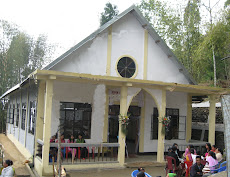





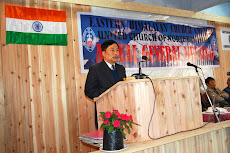







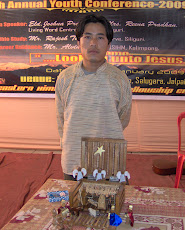











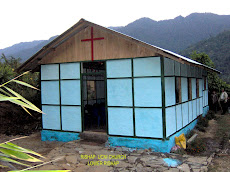


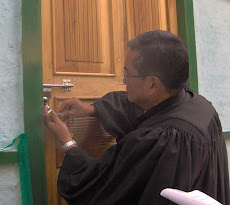





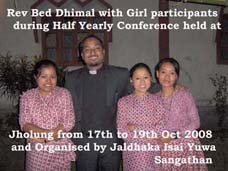



No comments:
Post a Comment